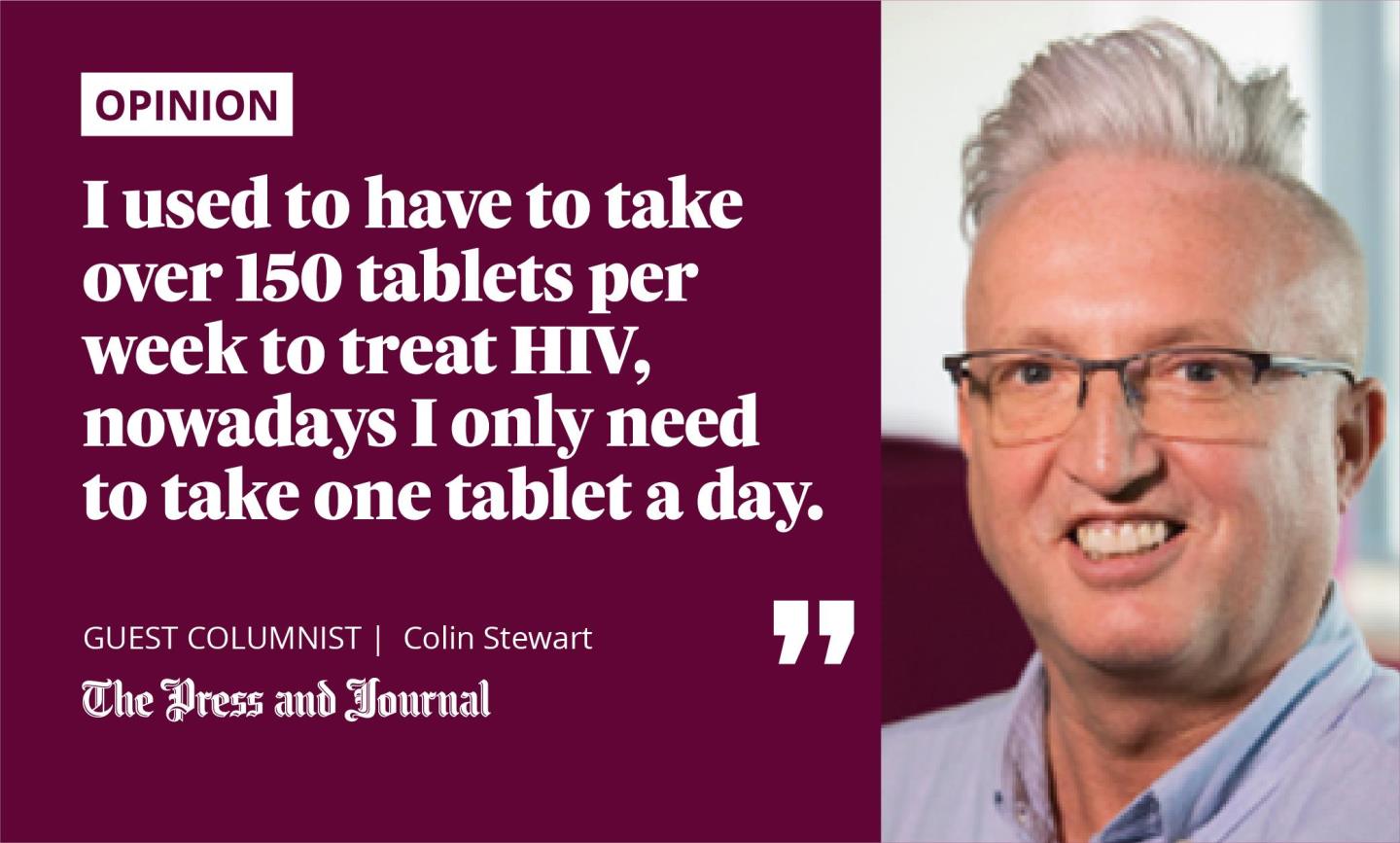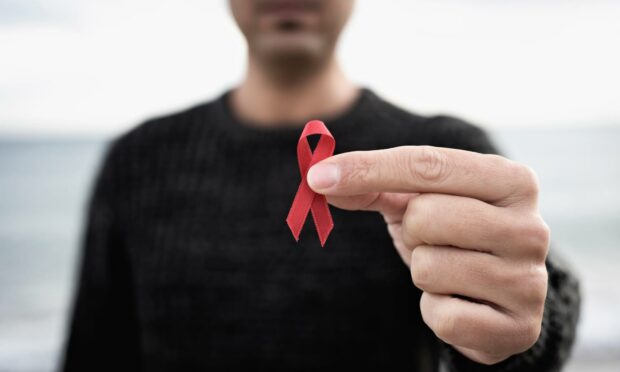When I was 29, back in 1996 I was diagnosed with HIV. It was a different world back then compared to what it is like now.
My CD4 (white blood cell count) was down to 30 – in a healthy person it can be around 1,000. I was told I had two to three months to live. That was an awful time for me, dealing with that knowledge and being so very ill, yet not really able to tell anyone because of the stigma associated with HIV.
However, more than 25 years after diagnosis, I am still here, living a full and healthy life and comfortable talking about my status.
In that time, a lot of advances have been made around HIV. I used to have to take over 150 tablets per week, nowadays I only need to take one tablet a day.

I, along with a couple of friends and with help from NHS Grampian and HIV Scotland, started Our Positive Voice Grampian (OPVG) to provide support for people living with and affected by HIV. We are peer support trained and offer this through the NHS Near Me platform. We have an open session every Thursday from 9am to 12pm, where participants can connect with an OPVG member who is peer mentor trained.
Undetectable = untransmissible
There are still a lot of myths and misinformation about what HIV is and is not. If you are HIV negative, there is a pill you can take (called PrEP) that seriously reduces the risk of you becoming HIV positive. This is not just information people in the gay community should be aware of. In the Grampian area recently, nearly half of those newly diagnosed were heterosexual and aged 40 or over.
If you are HIV positive and on treatment with an undetectable viral load for more than six months, you cannot transmit the virus
OPVG is currently running a campaign called U=U, which stands for “undetectable equals untransmissable”.
If you are HIV positive and on treatment with an undetectable viral load for more than six months, you cannot transmit the virus. This is why we are encouraging people to get tested.
The sooner you find out if you are HIV positive, the sooner you can be put on medication which then protects your immune system and reduces the amount of HIV in your body. You will probably end up simply taking one table a day, like myself.
Let’s stop the transmission of HIV by 2030
Being diagnosed HIV now isn’t the big deal it was back when I was diagnosed, now it is treated like any other chronic illness and, once on treatment, you can go on to live a normal life span.
If we can get everyone tested that could have been at risk and get them on medication, we can stop the transmission of HIV. OPVG was instrumental in getting Aberdeen signed up to the Fast-Track Cities (FTC) initiative, making it the second city in Scotland to get on board. One of the goals of the FTC initiative, which is a global scheme, is to stop the transmission of HIV by 2030.
To get tested, you can speak to your GP, visit the Grampian Sexual Health Services website or phone 0345 337 9900. You can also order a self-test kit from hivtest.scot.
For more information or peer support, you can visit ourpositivevoice.org or email info@ourpositivevoice.org to set up an appointment.
Colin Stewart is secretary and co-founder of Our Positive Voice Grampian
